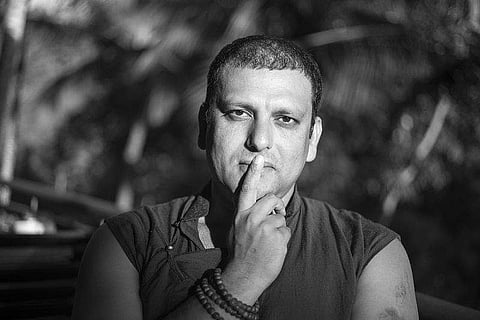

Since the beginning, we knew that the Venerable Tenzin Priyadarshi's life story is the stuff books are written about. Ran away from home at the age of ten, driven by visions of a mysterious mountain peak and of men with shaved heads attired in robes. Cut to today, the revered monk is the President and CEO of The Dalai Lama Center for Ethics and Transformative Values at the Massachusetts Institute of Technology. In between, he even received his graduate education from Harvard University. Now tell us, wouldn't you be interested to read the story of such a profound individual?
Running Toward Mystery: The Adventure of an Unconventional Life is the name of this monk’s biography he penned with co-author Zara Houshmand, an Iranian-American writer. The book covers several aspects of his life, from the teachers he admires to the work he is doing at The Dalai Lama Center. "We continue to design and iterate innovative ways to encourage ethical imagination. We are currently working on an art and values digital project for all ages — a leadership programme for law enforcement agencies in the US — and continuing to expand our existing signature programmes," says the Tribeca Disruptive Fellow and the 2018 Fellow at the Center for Advanced Study in Behavioral Sciences at Stanford University, about his current work at the centre. We ask the monk who has been a part of conflict resolution processes in India and Sri Lanka, some questions about his book, the rise of technology and how to maintain a positive outlook during the pandemic. Excerpts:
We all know about the visions you had at the age of six, but what convinced you to set out in search of them?
It is difficult to describe how conviction built up then. It was an organic process and my intuition was to take the risk and set out on a journey. Not knowing was okay.
Do tell us about how long it took to actually write the book and what are the three biggest takeaways that you want readers to have from it?
Thoughts of writing a book began almost ten years ago due to persistent requests from my students. The bulk of the writing and filtering was done in the past two years and I realised that not all can be said in a single book. It has been a process and will continue to be so. Embrace. Mystery. Fearlessly. If I tell you the takeaways there’s no mystery! Even seeking 'takeaways' is a very utilitarian consumer mindset. Instead, how about just letting go.
You have written about teachers and their importance in your life. Has the definition of a teacher, with the advent of digital learning, changed?
There are different kinds of teachers with diverse teaching styles. We should not approach learning as 'one size fits all'. That has been detrimental to the creative aspect of learning. Teachers need to learn new approaches and platforms to teach in order to serve their students better. There’s a fine balance between relevance and timelessness of the process of inquiry which may not always be dictated by near term concerns.
Technology is enabling change faster than we imagined. In this scenario, what are the ethical questions we should be asking ourselves?
I believe that asking deeper questions around the short and long-term impact on human/ social behaviours of technology; impact on civic institutions such as democracy, healthcare and judicial systems are important. We should also be cautious of narratives, for example, if a system/platform/product claims to bring the world together but in reality, is promoting polarised destructive conversations and behaviours, then we must not ignore the cost to civic society. Our world cannot afford such callousness.
The young, who are losing out on jobs and opportunities for higher education, are particularly dismayed. What should they be doing in times like this to prepare themselves for the future?
Think of it as a 'gap year'. Explore yourselves in terms of what brings you the most meaning, fulfillment and joy. Following the masses is not a proven recipe for happiness. There are other forms of learning one can undertake that is not tied to an institution.
Since it's getting harder and harder to focus on the positive side of things, which you have implored us to do in your previous interviews, how do you propose one maintains a positive outlook?
Something being hard should not result in giving up. Begin with small experiments: forming a discipline to notice one positive quality in someone around you or your immediate environment; actively doing a small positive thing, a kind word or a gesture, a smile, an act of helping someone in need. We are the world and the world is us. So if we wish to see a more positive world, we should also attempt to bring a few positive things to the world.
